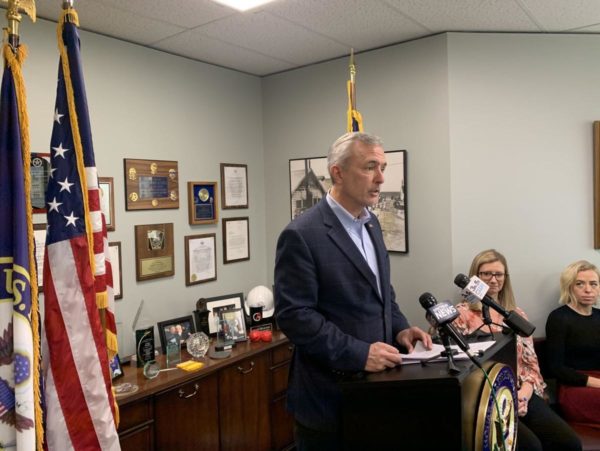Munzer, a yoga and fitness instructor in New York City, lost her jobs at several sports clubs in mid-March amid the coronavirus pandemic. She depends on the enhanced payment to cover her rent and health insurance and buy food for herself and her daughter, Olivia. The roughly $500 she receives in state benefits isn’t enough, she said.
With no date set for gyms to reopen, Munzer fears she could wind up homeless and be forced to send her 12-year-old to live with her ex-husband. She doesn’t think she’ll be able to find another job before the $600 federal boost runs out in three weeks and hopes lawmakers take action.
“No one is hiring. They are laying people off,” said Munzer, 53. “I didn’t choose this. I beg them to extend it.”
Many millions of Americans are in the same situation. Although employers have begun bringing back some workers after shedding millions of positions amid the coronavirus-fueled lockdowns in the spring, nearly 18 million people remain jobless and without many prospects. At the end of May, there were nearly four unemployed workers for every job opening, according to the most recent data from the Bureau of Labor Statistics.
Plus, the new surge in cases has led at least two dozen states to pause or roll back their reopening plans, prompting additional job losses. And several companies have recently filed for bankruptcy, announced store closings or warned of thousands of layoffs to come.
The enhanced benefit provides more than 25 million Americans with more than $15 billion each week, said Andrew Stettner, senior fellow at The Century Foundation. State payments alone replace only about 40% of wages, on average.
Congress enacted the provision in late March as part of a historic expansion of the nation’s unemployment program at a time when health officials didn’t want people out looking for work. Now, lawmakers have only a few weeks left to decide whether to renew the $600 weekly boost in benefits.
But they are split along party lines. Democrats generally favor extending the program, while Republicans fear that the generous enhancement creates a disincentive for people to return to work. Roughly two-thirds of recipients are now making more on unemployment than they did in wages, according to University of Chicago researchers.
Whole industries remain paralyzed
For Russell Zwolinski, however, the opposite is true. A concierge at a Chicago hotel who was laid off in mid-March, Zwolinski makes a lot of money over the summer from selling tours. While the hotel has reopened and called back some front desk staff and housekeepers, he said he’s not expecting to be rehired until tourists return, which could take months.
While he currently has a small financial cushion from selling his mom’s condo after she passed away, the 53-year-old said he won’t be able to afford to stay in the Chicago area if he loses the $600 federal benefit and has to rely only on state jobless payments. He’d likely have to go live with his younger sister in Virginia.
“It’s allowed me to get by, to survive from day to day,” he said of the enhanced benefit. “I don’t know what I would do if I was only making $1,200 a month. I couldn’t survive here for very long.”
Yet the ranks of the unemployed now include people whose employers initially held on but have let workers go as the extent of the economic damage has grown.
In Altoona, Pennsylvania, Bryan, 39, was able to hold onto his computer maintenance job at an aerospace manufacturer until mid-June. (He asked that his full name not be used.)
But now both he and his wife, an elementary school teacher who is also out of work, are relying on their combined $1,200 weekly federal benefit to stay on top of their bills and take care of their two young children. It takes some managing since he’s still making less than he did on the job and doesn’t want to fall behind on any payments.
“Credit is easy to ruin and hard to get back,” Bryan said.



